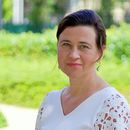Find out on this page which mission statement and quality objectives our faculty has regarding the development of study programs and how they are implemented.
Mission Statement and Quality Objectives
The faculty’s mission statement is based on the idea that a culture of communication and exchange between teachers and students, a culture of reflection and peer consultation amongst colleagues as well as critical observation and perpetuation of the culture of organization should be developed. These are unique features that the faculty has committed itself to. For this, the Faculty for Social Sciences and Philosophy has a mission statement which is based on four pillars that stand for the fundament of development in studies and teaching:
- Appeal of studying
- Innovation of studies and teaching
- Internationality and mobility
- Funding of academic trainees
The quality assurance concept for teaching and studies
The Faculty for Social Sciences and Philosophy already began in the year 2005, as part of the Bologna Reform, to develop a modernized program for the quality assurance of teaching and studies. The essentials for this were developed with four social scientific faculties of other universities in the context of a pilot project moderated by the Centrum für Hochschulentwicklung (CHE) (English: Center for University Development). The concept that was developed served later as a model for the “Leipziger Modell”, which became the guideline in 2008 for the Quality Assurance of Teaching and Studies of the entire University of Leipzig in the context of a cluster accreditation. This concept has continued to be developed further and has been adapted to the new parameters of the system accreditation. The current Quality Assurance concept for Teaching and Studies at the faculty continues to follow the premises of development orientation. Because of this, the renewed evaluation instruments and analysis formats have been designed in a way that they primarily serve as a basis of information and initiator for the further development of curriculum, teaching, and studies at the faculty.
The study program and teaching evaluations form together a central component of the faculty’s quality assurance concept. The evaluations should deliver a wide spectrum of information, from which insight regarding the quality of curriculum, teaching, and studies can be obtained. The study program and teaching evaluations aim especially to:
- Give the representatives of the subjects comprehensive information about the perceived conception, situation, as well as teaching quality in the study programs, in order to obtain better insights for the further development of teaching and study programs,
- Allow teachers to receive comprehensive insight as to the perceived quality of their teaching, which will support the development of their didactic profile,
- Support the collegial exchange regarding the further development of teaching,
- Supply necessary data for the teaching report and for the internal certification,
- Generate necessary information and insight for external quality assurance processes.
The Study Program Evaluation
The study program evaluation occurs in a two-year rhythm and is divided in the elicitation and evaluation of key figures and student surveys. The focus lies with three comprehensive quality characteristics: study program concept, studyability, and internationality.
The Teaching Evaluation
The teaching evaluation occurs at the study program level in a two-year rhythm. As a data basis, the teaching evaluation of the study program’s teachers of the last two years is separated according to the form of teaching (lecture, seminar, etc.). The focus of the teaching evaluation lies with three comprehensive characteristics: content-related composition, didactic/teaching competency, fairness/contact.
The faculty’s quality assurance cycle consists of five steps that must go through a two-year rotation by all faculty’s study programs:
- Evaluation and Reporting
- Analysis within the subject
- Information for the study commission
- Engagement with the faculty council
- Feedback as to the implementation of enacted measures to the study commission
Study Program Development
The faculty’s acknowledgment regarding study program development is based on the leading idee that beyond the processes required by law (evaluation of courses) and committees (study commission, examination board, faculty council), structures can be established and developed further, through which the competitive and innovative ability of the faculty’s study programs can be retained and strengthened.
The study office leads and advises the faculty’s subjects regarding the organization and implementation of curricular reform and revision processes. At the same time, the insights gained by the study program and teaching evaluations, requirements and recommendations from external appraisal in the context of an accreditation process, the development in the respective research and/or career fields which consider the competitiveness in the national and international comparison, as well as the accreditation-relevant standards and examination and organizational aspects are considered.
Also, the study office counsels the faculty’s subjects regarding the process of new establishment and repeal of study programs, supports them in creating necessary documentation, and accompanies them in the university committees.
Teaching Report
The faculty has committed itself to complete a teaching report every two years. This should shed light on the teaching and study situation of the faculty’s study programs based on an empirical data basis (surveys and key figures). The Saxony Higher Education Law gives the teaching report, first and foremost, an informational and control function, which gives the university administration an overview over the fulfillment of teaching responsibilities at the faculty. Furthermore, the teaching report is an instrument for self-reflection, which gives the faculty as well as the study programs systematic information about the situation in teaching and studies, makes wanted as well as not-wanted developments visible and shows approaches for possible adjustments. In its core, the teaching report should demonstrate the comparison between the respective goals and the current teaching and study situation, not only at the study program level, but also at the faculty level. On the basis of the results, strengths and weaknesses should be specified and possible approaches for their adaptation should be formulated. The Teaching Report Regulations of the University of Leipzig regulates this process in detail.
Certification
The faculty’s study programs are, in context of the cluster accreditation or of the program accreditation, already accredited. With the introduction of the system accreditation at the University of Leipzig, the faculty’s study programs have the obligation to be externally assessed and internally certified every six years. The study programs B.A./M.A. Cultural Studies, B.A./M.A. Philosophy, and B.A./M.A. Sociology have been certified until the end of March 2025. The study program M.A. Global Studies is the first international study program of the University of Leipzig to be successfully accredited according to the European Approach. All other study programs of the faculty should be externally assessed and internally certified in the context of the system accreditation until the year 2025.
The study office supports the faculty’s subjects with the creation of documentation for the external assessment and the internal certification, organizes the entire process and accompanies the subjects in all faculty and university committees.
Bachelor Study Programs
Master Stuy Programs
The accreditations for the B.A. and M.A. Sociology, B.A. and M.A. Cultural Studies, and B.A. and M.A. Philosophy programs have been extended until March 31, 2027. Current accreditation data can always be found in the Accreditation Council's database.



